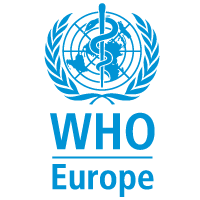
WHO, the Government of Tajikistan and over 18 United Nations agencies and development partners have signed a joint statement launching a new era of collaboration in primary health care (PHC) in the country.
Signed at an official ceremony in Dushanbe on 27 May, this is the first agreement of its kind and will see WHO working closely with the Ministry of Health and Social Protection of the Population – in a country where access to basic health services can still be a challenge.
The joint statement outlines a new vision in which WHO will work closely with international partners in the country, including Deutsche Gesellschaft für Internationale Zusammenarbeit (GIZ), the European Union (EU), the Japanese International Cooperation Agency (JICA), the United Nations Population Fund (UNFPA), the United Nations Children’s Fund (UNICEF), the United States Agency for International Development (USAID) and the World Bank – all co-signatories.
“This is an important day in our ongoing collaboration with Tajikistan. The past decade has already seen significant investment in the transformation of primary health care in the country,” said Dr Melitta Jakab, Head of the WHO European Centre on Primary Health Care. “And we have seen how PHC has delivered during the pandemic, supporting people and communities in the most difficult situations.”
These achievements are under threat, Dr Jakab added. “And we can do better by investing more in health and primary health care and addressing shortages in health workers. This is what this agreement is about: a commitment to working – united – on what matters.”
“In Tajikistan, strengthening PHC is key to achieving Sustainable Development Goal 3 on health and well-being,” said Dr Victor Olsavszky, WHO Representative in Tajikistan. “But we cannot do this alone. Only through collaboration and coordination can we achieve this goal.”
The statement, officially named the “Joint statement of the Ministry of Health and Social Protection of Population and development partners on strengthening primary health care in the Republic of Tajikistan”, builds on more than 6 months of close work and coordination between WHO and the Government of Tajikistan. Throughout this time, WHO facilitated useful conversations between the government and partners on what they saw as some of the key challenges to stronger PHC in the country.
Five actions for stronger PHC in Tajikistan
The joint statement identifies 5 key areas for stronger collaboration and coordination:
- stronger governance mechanisms for PHC
- prioritized financing and resourcing for PHC
- addressing the critical shortage of health workers
- investment in infrastructure development and renewal
- expanding the scope of work of PHC to tackle a wider range of conditions.
The joint statement builds on ongoing collaboration with the Government of Tajikistan, as shown by a 2021 joint statement on health financing that is currently informing health financing efforts in the country.
“The joint statement is but one step on the road to strengthening primary health care and has generated enthusiasm and commitment,” Dr Jakab said. “Now is the time to move fast through implementation and turn these commitments into reality.”
Over the next weeks and months, WHO will work particularly closely with the EU and GIZ on the Development Coordination Council working group on health, and the EU-funded Universal Health Coverage Partnership.

